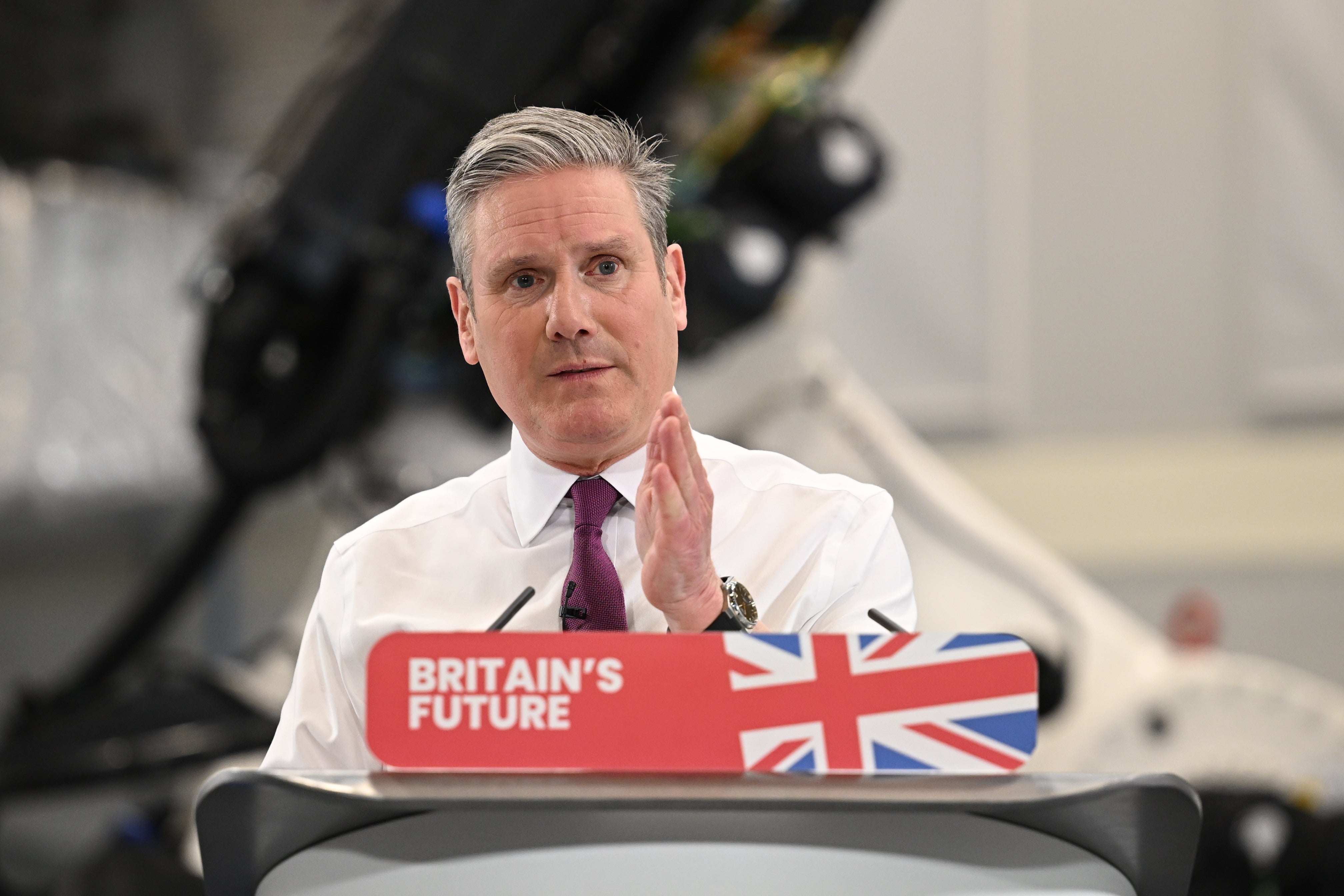Will 2024 be the year of ‘Starmer the radical’?
The Labour leader has made some big promises, writes Sean O’Grady. If he can deliver them, they’ll be transformational


It’s January. There are, probably, at most eight or nine months until the general election. Labour is about 15 to 20 percentage points ahead in the opinion polls and has been consistently ahead for a couple of years now. There is nothing on the horizon that will revolutionise the political scene and indeed, the economy may worsen and slip into recession as the year goes on. No government has come from this far behind to go on and win a general election.
So maybe we ought to start listening to Keir Starmer. I mean, properly listening, reading what he’s proposing – albeit he swings around a bit – and thinking about what a Labour government would be like. Indeed, what Britain would be like after a term – or, as Starmer envisages it, two terms – of a Labour government.
Maybe, too, we should start by taking him at his word. In that case, we may be sure that a few quite significant things would change, things that would change people’s lives pretty immediately and noticeably. Radical, indeed. For example, the Labour leader, in his new year speech, promises (or leastways strongly implies) that wages will be higher and sufficient to sustain family life, and a home would be affordable under a Labour government (even if it would take some years).
“If you can’t get an affordable home in your town but with Labour you can, that’s a difference worth fighting for. If you can’t get a job with regular hours that will let you look after your family but with Labour you can, that’s a difference worth fighting for. If you’re a care worker who saved lives during the pandemic and has been rewarded with poverty wages but with Labour you can get a fair pay agreement, that’s a difference worth fighting for.”
It certainly is. So is the breakfast club that parents will be able to access for their children; the doctor’s appointment they cannot secure at the moment; the million and a half more new well-insulated homes that will be built thanks to reform of the planning laws; the cheap green energy so long promised; “a world-class teacher in every classroom”; scrapping GCSEs and A levels and revolutionising the curriculum; halving violence against women and girls, tougher sentences for rapists, and recruiting another 13,000 police or PCSOs; better (if unspecified) social care; creating “500,000 new, skilled jobs in the industries of the future, rebuilding the strength of our industrial heartlands”; and implementing, as affordable, a £28bn per annum renewable energy plan.
And all of that to be simultaneously accomplished while getting growth up, the national debt (as a proportion of national income) down, and reducing the tax burden on working people, as per Rachel Reeves’s “iron discipline” at the Treasury. That is because Labour will give us the fastest-growing economy in the G7, in its words.
Nor does it stop there. We’d have an end to the non-doms; the private schools would lose some of their tax privileges; political lobbying would be properly regulated, bent MPs sacked and fraudsters making money from the taxpayer banged up for a decade; abolition of the House of Lords; stop the boats, end the Rwanda plan, clear the asylum backlog, offer safe and secure routes for refugees – and reduce overall migration.
Happy now?
I’d be the first to admit that at least some elements of that agenda are self-contradictory, and the faint whiff of freshly baked cakeism is caught by one’s nostrils when surveying this Starmerian vision of Britain in the year 2034. You’d be entitled to view at least some of Labour’s programme for government, as it stands, as over-ambitious, if not fanciful. We’ve been let down a little too often to feel otherwise. But no one should call it, or Starmer, timid or vague. Like it or not, he’s set out precisely how he plans to transform the country, build the New Britain, and make the next decade Labour’s – and indeed his – own.
The radical Age of Starmer awaits us. It might even be exciting.



Join our commenting forum
Join thought-provoking conversations, follow other Independent readers and see their replies
Comments